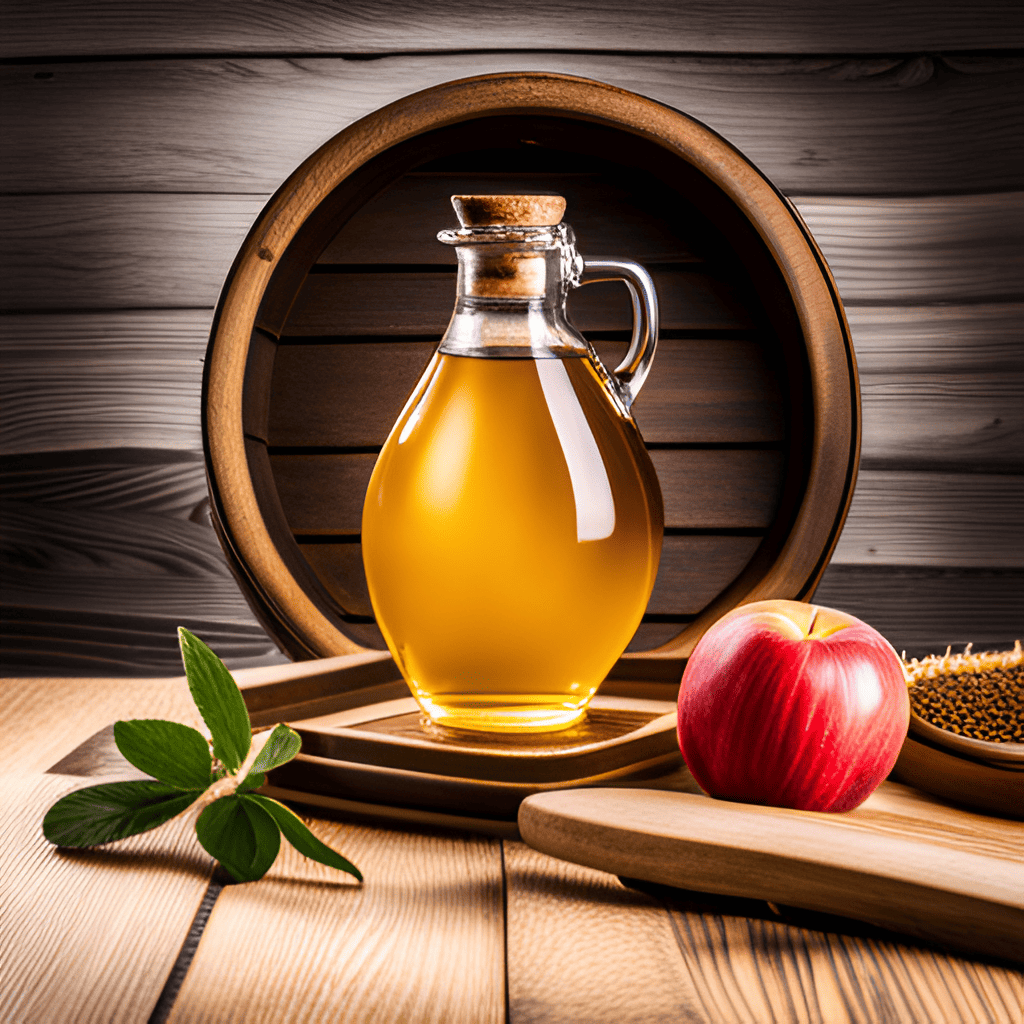Some types of high-quality artisanal apple cider vinegar are aged in wooden barrels as part of their production process. The aging in wooden barrels allows the vinegar to develop a more complex and mellow flavor profile, similar to other types of vinegar, like balsamic vinegar and sherry vinegar.
The process of aging apple cider vinegar in wooden barrels involves transferring the freshly fermented vinegar into wooden casks, often made from oak, and allowing it to mature over time. During this aging process, the vinegar absorbs some of the flavors and characteristics of the wood, which adds depth and richness to its taste.
The specific duration of aging can vary depending on the desired flavor profile, but it typically lasts for several months to a few years. As the vinegar ages, it becomes smoother and more balanced, making it a sought-after choice for culinary uses, dressings, and various health and wellness practices.
How Apple Cider Vinegar Is Aged In Wood Barrels
Apple cider vinegar is typically not aged in wood barrels in the same way that other liquids like wine or vinegar (such as balsamic vinegar) are aged. The process of making apple cider vinegar involves a fermentation process that converts the sugars in apple cider into acetic acid, giving it its characteristic tangy flavor.
While apple cider vinegar is not aged in wooden barrels, some artisanal or specialty producers may choose to age it in wooden containers or barrels for a short period to impart subtle wood flavors and enhance its overall complexity. This aging process is more common with high-quality, small-batch artisanal apple cider vinegars rather than commercially produced varieties.
When the aging of apple cider vinegar occurs in wooden barrels, the process is similar to how other liquids are aged. Here’s how it might be done:
- Selection of Wood Barrels: Producers choose appropriate wood barrels, often oak barrels, for the aging process. The type and size of the barrels can influence the final flavor profile of the vinegar.
- Filling the Barrels: Freshly fermented apple cider vinegar is poured into the wooden barrels for aging. The vinegar is typically made from apple cider that has undergone a natural fermentation process.
- Aging Duration: The vinegar is left to age in the wood barrels for a specific duration, which can vary depending on the desired level of wood influence and complexity.
- Flavor Development: As the apple cider vinegar ages in the wooden barrels, it may absorb some of the characteristics of the wood, adding subtle oak or other wood flavors to the vinegar. The aging process allows the vinegar to mellow and develop more intricate notes.
- Monitoring the Process: Producers carefully monitor the aging process to ensure that the vinegar achieves the desired level of flavor without becoming overly influenced by the wood.
- Bottling: After the aging process is complete, the apple cider vinegar is removed from the wooden barrels and bottled for sale as aged apple cider vinegar.
Again, it’s important to emphasize that the aging of apple cider vinegar in wooden barrels is not a standard practice for all apple cider vinegar production. The majority of commercially available apple cider vinegar is not aged in wood barrels and is typically consumed as freshly fermented vinegar without an additional aging process.
If you are interested in trying aged apple cider vinegar, you may need to seek out specialty or artisanal producers that offer barrel-aged vinegar varieties.
Locating Wood-Aged Apple Cider Vinegar
Finding apple cider vinegar that is specifically aged in wood barrels may require some research and exploration of local or specialty producers that prioritize this aging method. Due to the dynamic nature of the food and beverage industry, it’s possible that new producers have emerged or existing ones have adopted barrel-aging practices since my last update.
To find apple cider vinegar manufacturers that produce and age vinegar in wooden barrels, consider the following steps:
- Artisanal Vinegar Producers: Look for artisanal vinegar producers that focus on high-quality, small-batch vinegar. These producers may be more likely to experiment with aging their vinegar in wooden barrels.
- Local Producers: Check out local specialty food markets, farmers’ markets, or farm-to-table stores that carry locally produced apple cider vinegar. Local producers may be more inclined to use traditional aging methods.
- Online Searches: Use online search engines or vinegar-related platforms to find information on producers that age their apple cider vinegar in wooden barrels. Check their websites or social media pages for details on their production methods.
- Specialty Food Stores: Visit specialty food and beverage stores or gourmet markets known for carrying unique and artisanal products. Inquire if they have any barrel-aged apple cider vinegar available.
- Inquire at Cideries: Some cideries may produce both apple cider and apple cider vinegar. Inquire if they have any barrel-aged apple cider vinegar offerings.
Remember that the availability of barrel-aged apple cider vinegar may vary based on the region and season, and it’s always best to check with the producers directly to confirm their production methods.
Additionally, keep in mind that artisanal products may be produced in smaller quantities and might not be as readily available as commercially produced vinegars.
Final Thoughts
It’s important to note that not all apple cider vinegar on the market is aged in wooden barrels. Many commercial brands produce apple cider vinegar through a faster fermentation process that doesn’t involve extended aging.
If you are specifically looking for apple cider vinegar aged in wooden barrels, you may need to seek out artisanal or specialty brands that emphasize this traditional and time-intensive production method.

